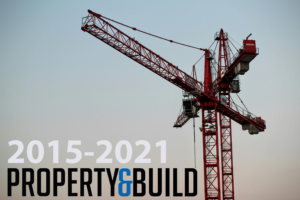New Zealand’s building and construction industry can lift its poor productivity by establishing a digital database on building products, a BRANZ funded report from GS1 New Zealand finds

This opportunity is explored in “Digital Product Data for Lifting Productivity” – a major new report from GS1 New Zealand on how such a digital database, or repository, would support the building and construction industry and on feasible steps for its establishment.
The report, funded by BRANZ from the Building Research Levy, draws on analysis commissioned from the NZ Institute of Economic Research (NZIER), on international examples of productivity gain from using digital data systems, and GS1 expertise in data standards and related technologies.
The report states improved accuracy of information, once standardised and digitalised, is a key source of productivity gain. This is because of reduced paperwork, information search time and costs. Furthermore, online availability of information – especially authoritative product assurance information for determining whether products are fit for purpose – can enable much greater certainty and confidence in product selection, and in building consent processes.
The latest statistics put the industry’s annual output at $64 billion or 11.5% of New Zealand’s total economic output. The report notes that its record of low productivity growth needs to be addressed (annual 0.9% per annum for the past 25 years; less than 30% of that seen in the ICT sector, and less than half of that
in agriculture). “Digital infostructure”, including a product information database with information used in numerous business decisions, is one means of starting to tackle the problem.
The report says such infostructure, enabling rapid exchange of product information across the industry, cannot succeed without the use of standardised data, and it recommends the use of global standards. The repository would use “cloud” computing with multiple channels for “anytime, anywhere” access, and it
would enable much more inter-operability between industry players.
The digital repository would enable suppliers to load product data once, making the data available to hundreds of users saving suppliers paper work, time and money.
NZIER has estimated that information barriers to efficient consenting on residential building projects could be costing more than $30 million annually. Having digital product data available across the industry would help reduce those costs. The NZIER analysis indicates the appropriate infostructure could lead to
productivity gains which benefit New Zealand’s Gross Domestic Product by as much as $220 million.
“The infostructure required does not involve any “cutting edge” or new technology, and would plug into
systems already in use throughout the building and construction industry,” says GS1 General Manager Government Nick Allison.
“The technology component might cost in the order of $1.5 million. The real challenge is cross-sector coordination and collaboration, including the adoption of common standards and data structures which enable information to be effectively gathered and exchanged.”
The infostructure design is market neutral, thereby enabling pro-competitive use and extension of data by the private sector supporting innovation.
“Having structured and standardised data is the critical element, and this starting point is already recognised by the construction industry and government agencies. In general, industries with lakes of unstructured data are actually ‘information poor’ because the data just doesn’t enable the critical changes in
business systems and practices which lead to productivity gain,” says Allison.
The report recommends the establishment of an initial, core set of data on products including “metadata” which links structured information about each back to its globally unique identifier. It proposes that an industry not-for-profit governance body oversee the infostructure and promote the necessary trust and
collaboration.
Allison says the industry has yet to reach consensus on data standards and structures although the concepts and their potential for productivity gain are understood.
“Our research has outlined a feasible approach for the New Zealand construction industry to move forward on and there is plenty of goodwill and interest to do so. We hope it is sufficient to overcome industry collaboration barriers.”
It is noted that the Environment Select Committee is considering submissions on the Building (Building Products and Methods, Modular Components, and Other Matters) Amendment Bill.



